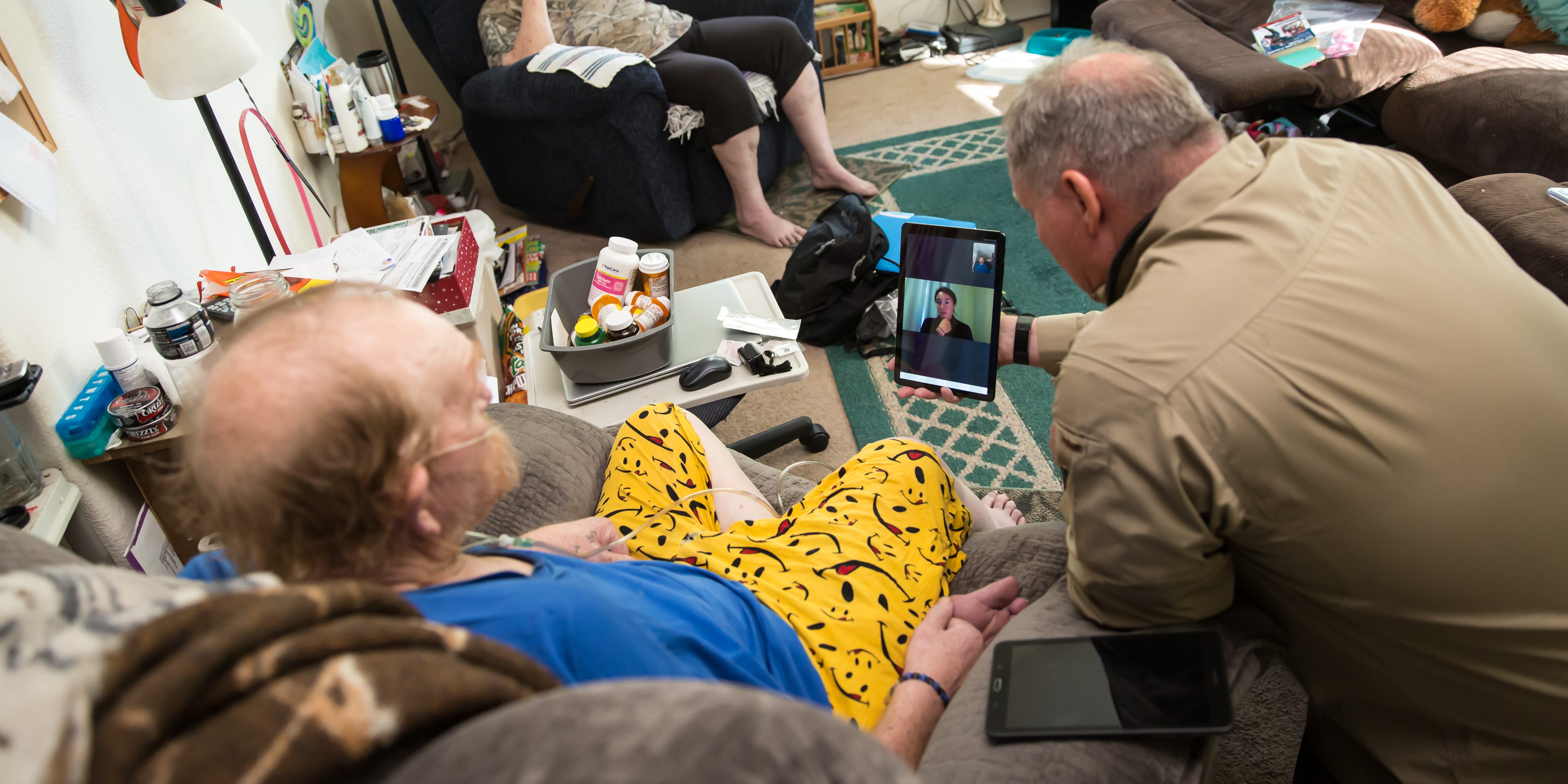April 7, 2021 –
To address the worsening rural health care crisis, Ariadne Labs has partnered with the Thompson Family Foundation and two health systems to conduct a randomized controlled trial of a rural home hospital model, developed by Ariadne Labs’ Rural Home Hospital (RHH) project and based on a successful urban home hospital program at Brigham and Women’s Hospital.
Blessing Health System of Quincy, Illinois, and Appalachian Regional Healthcare, which serves eastern Kentucky and parts of West Virginia, were selected among an extremely competitive cohort in February 2020 to work with Ariadne Labs to build, launch, and evaluate an innovative rural acute-care-at-home model.
The three-year trial will test whether a home hospital model can offer high-quality care while maintaining the cost savings found in urban home hospital programs.
“Access to high-value acute care services in rural communities is a growing national problem,” said David Levine, MD, MPH, MA, who leads Ariadne Lab’s RHH team. “A randomized controlled trial will help us examine how we can provide a high quality and safe patient experience affordably in a rural context.”
In recognition of the geographic disparities in access and quality of care and financial distress of rural hospitals across the U.S., Ariadne Labs launched the RHH project in November 2018 to adapt the urban home hospital principles for a rural setting by implementing innovative technologies, top-of-license personnel, and novel workflows to deliver high-value acute rural care.
The not-for-profit Appalachian Regional Healthcare (ARH) serves the rural communities of Eastern Kentucky and southern West Virginia and operates 13 hospitals, as well as multi-specialty physician practices, home health agencies, home medical equipment stores and retail pharmacies.
“ARH is honored to be chosen to partner with Ariadne Labs in an effort to be on the leading edge of proving the concept of home hospital in rural Appalachia,” said Maria B. Braman, MD, MBA, ARH Vice President, Medical Affairs and Chief Medical Officer.
“We hope to replicate the results seen in urban areas that demonstrate decreased length of stay, decreased readmissions and an overall increase in patient satisfaction. ARH believes that the advancement of digital technology will allow bold new concepts, like home hospital to transform and innovate care delivery. We are thrilled to pilot this partnership in our Hazard, Kentucky, community,” Braman said.
Blessing Health System is an integrated health system consisting of three hospitals, two physician groups, an accredited college of nursing and health sciences, a network of medical specialty businesses and a charitable foundation. It provides services for a rural 23-county area for communities within a 100-mile radius. Blessing operates a major rural Accountable Care Organization, bringing together health-care providers to give coordinated high-quality care to their Medicare patients.
“The Blessing Health System and its partners are excited about the opportunity to participate in an initiative that offers the opportunity to provide quality healthcare in a convenient, home environment,” said Julie Shepard, MS, administrative coordinator of Community Health Innovation. “The program will allow our health system to realize our goal of reducing total cost of care and improving quality for patients. The Rural Hospital at Home project will serve as a catalyst for our health system and partners to be transformed into a rural health system of the future.”
The RCT builds on 2019 work by Ariadne Labs to analyze patient and clinician perceptions of acute care at home in rural settings. This was followed by mock admissions in rural homes in Utah of chronically ill patients who feigned acute illness. The Ariadne team employed rapid cycle feedback from clinicians, patients and their caregivers and qualitative analysis of participant feedback. In the resulting paper published in BMJ Innovations in February 2021, the team found that rural home hospital care was technically feasible, well-received and desired. They conclude the model requires testing with acutely ill adults in rural settings, which is currently ongoing in Utah.



